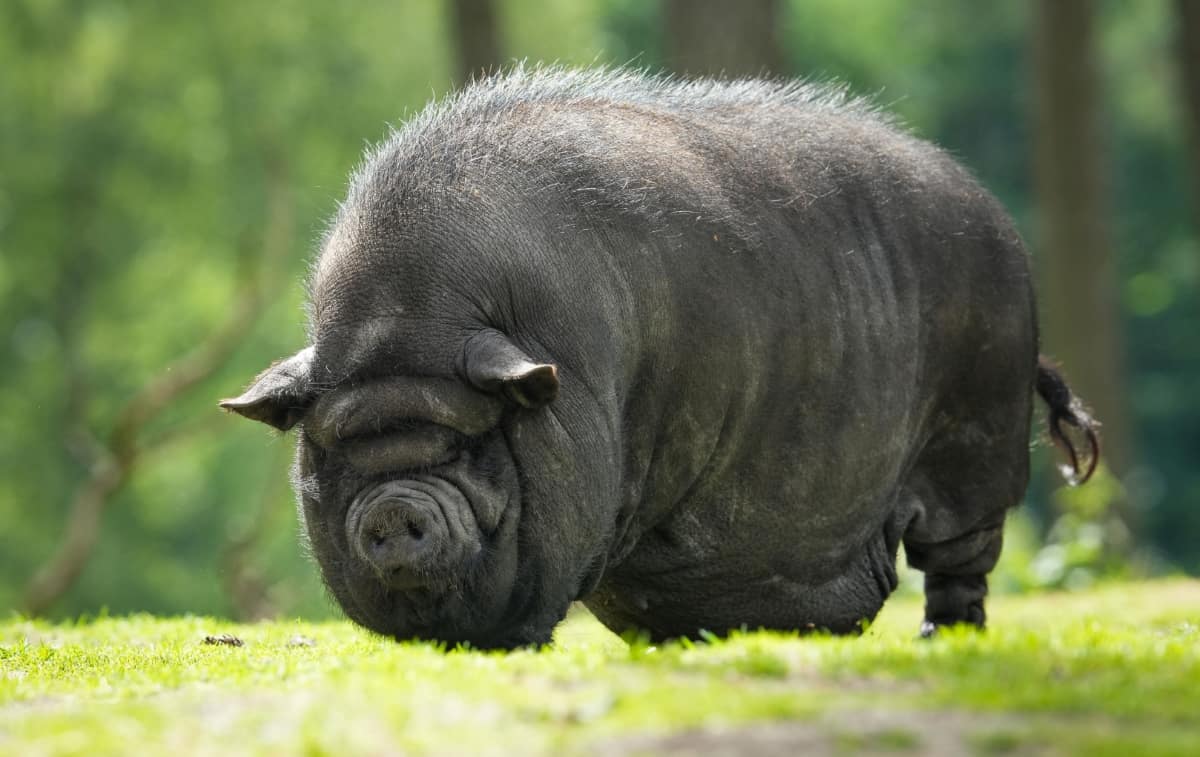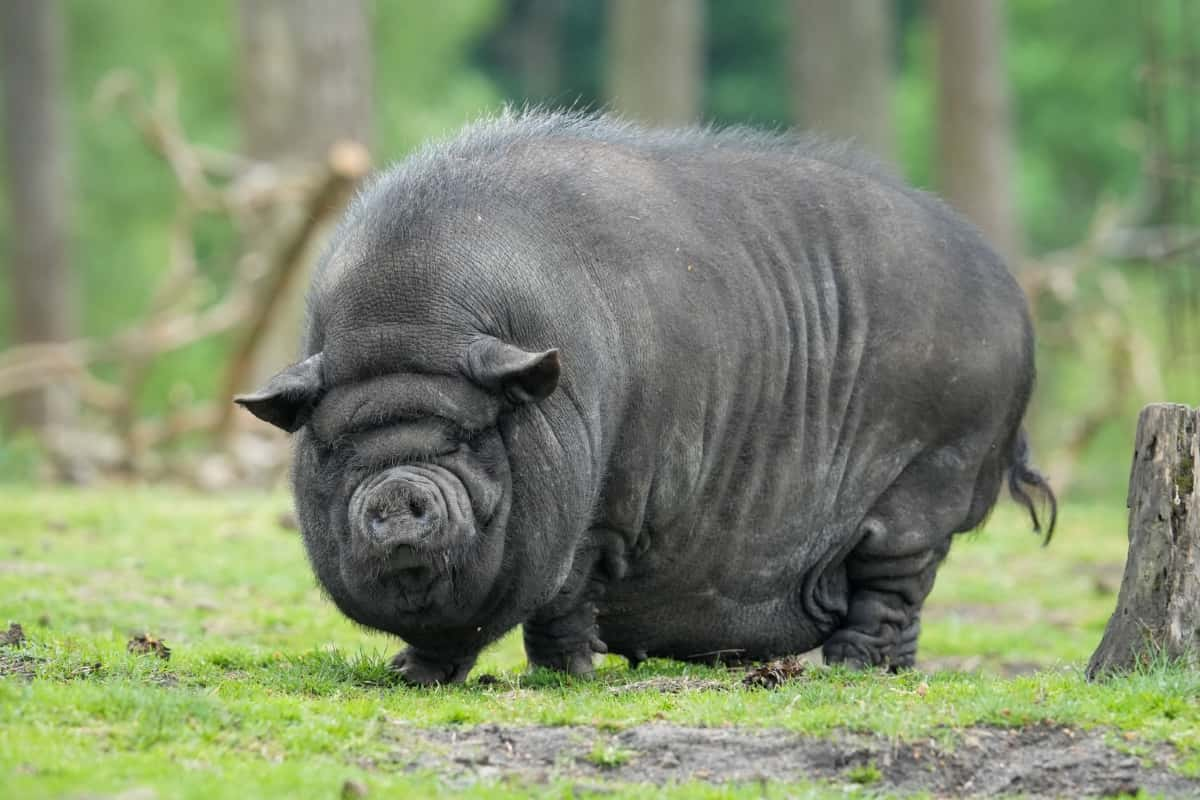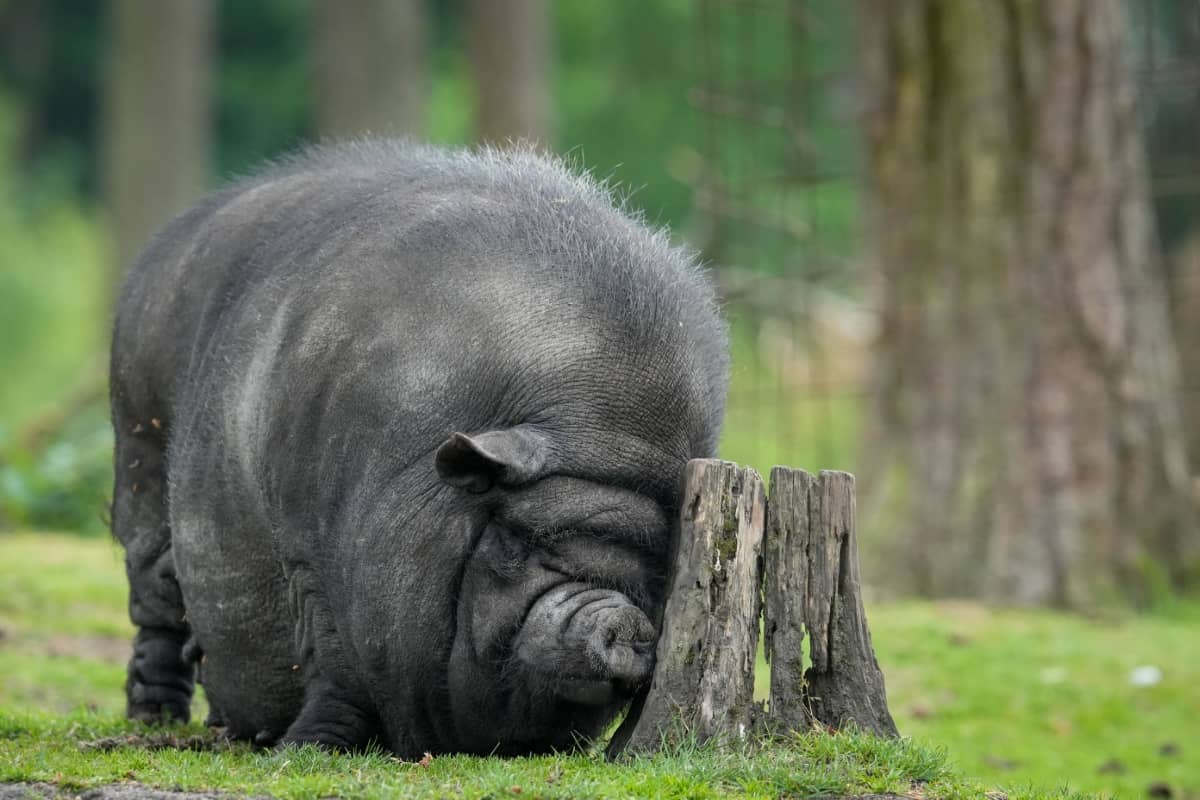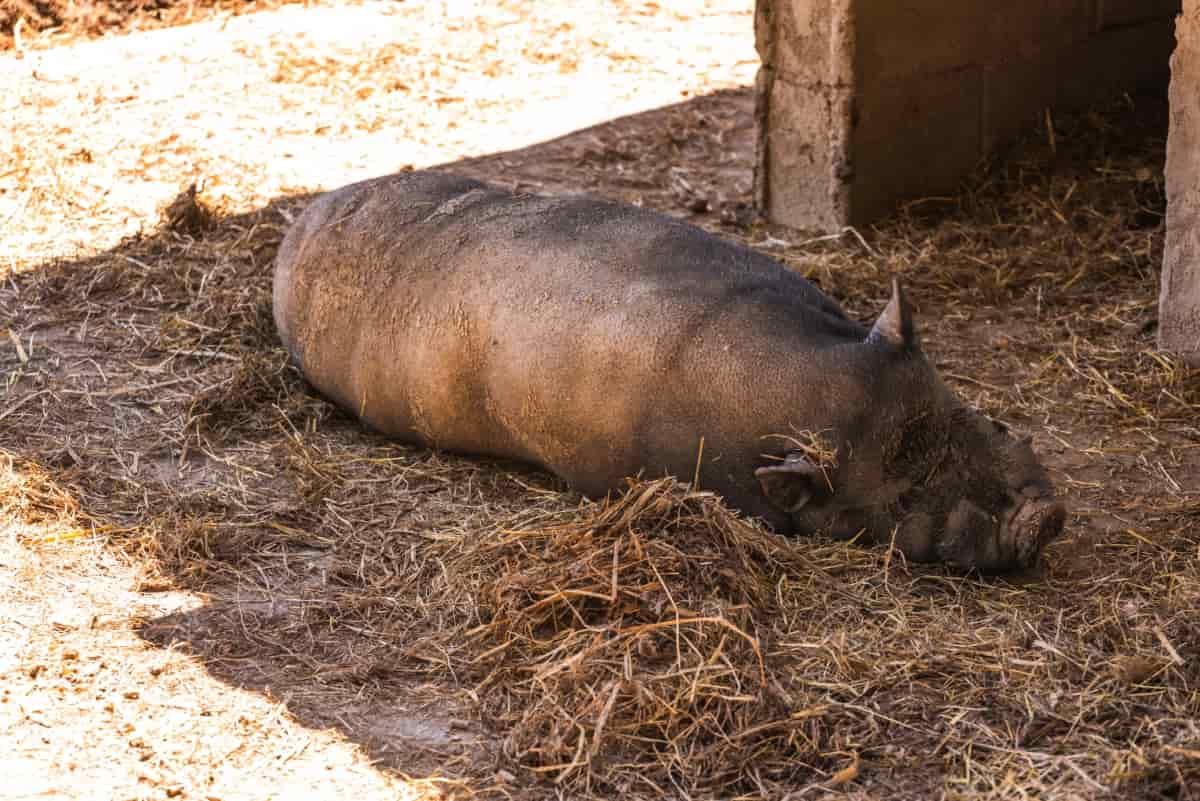With their distinctive charm and intelligence, Vietnamese Potbelly Pigs have captured the hearts of many as unique pets. Known for their friendly nature and manageable size, these pigs require dedicated Vietnamese Potbelly Pig care tailored to their needs, including a well-balanced feeding guide to ensure optimal health. Breeding Vietnamese Potbelly Pigs and raising Potbelly piglets can be rewarding, given the right knowledge of their diet, health issues, and legal ownership considerations.
With proper training, grooming tips for potbelly pigs, and attention to their indoor and outdoor housing needs, these pets can offer companionship and joy to their owners. Understanding potbelly pig behavior and temperament is key to successful integration into the family, alongside regular potbelly pig veterinary care and socialization efforts.
Introduction to Vietnamese Potbelly Pig
History and Origin
Vietnamese Potbelly Pigs originated from Vietnam and have been esteemed for their compact size and friendly disposition, making them popular pets worldwide. Initially raised for food, their unique characteristics have shifted their role to companion animals, reflecting a fascinating journey from farm to home.
Physical Characteristics
Typically, Vietnamese Potbelly Pigs weigh around 100 to 200 pounds and stand about 14 to 20 inches tall at the shoulder, distinguishing them from larger farm pigs. Their compact stature and distinctive potbelly contribute to their name and appeal, making them suitable for pet life.
Behavior and Temperament
Vietnamese Potbelly Pigs exhibit intelligence and sociability, fostering strong connections with their owners. They are known for their curiosity and playful nature, which requires engaging activities and social interaction to keep them content.
Price
The price of adopting a Vietnamese Potbelly Pig can vary, typically ranging from $100 to $600, depending on factors like age, pedigree, and health status. Prospective owners should consider the initial cost and ongoing care expenses.
Lifespan
Vietnamese Potbelly Pigs have a lifespan of 12 to 20 years, making them a long-term commitment for pet owners. Their longevity is a testament to their resilience and underscores the importance of dedicated care.

Choosing a Vietnamese Potbelly Pig
Where to Adopt or Purchase
When looking to adopt or purchase a Vietnamese Potbelly Pig, reputable breeders, rescue organizations, and adoption centers are ideal sources. These venues often provide health and lineage information, ensuring a responsible choice.
Assessing Health and Temperament
Assessing the health and temperament of a Vietnamese Potbelly Pig is crucial before bringing one home. A healthy pig should display clear eyes, good mobility, and a friendly disposition, indicative of proper care and socialization.
Legal Considerations and Zoning Laws
Understanding legal considerations and zoning laws is essential for potbelly pig ownership, as some areas may have restrictions. Prospective owners should research local regulations to ensure compliance and avoid legal issues.
Housing and Environment
Indoor Housing Basics
Indoor housing for potbelly pigs should provide ample space, comfort, and safety, with areas designated for sleeping, feeding, and elimination. Ensuring a pig-proofed environment free from hazards is key to their well-being.
Creating an Outdoor Enclosure
Outdoor enclosures for potbelly pigs should offer protection from the elements, space to roam, and stimulation. Fencing should be secure to prevent escapes, and shelters should provide a retreat from weather extremes.
Nutrition and Feeding
Understanding Nutritional Needs
The best diet for potbelly pigs balances essential nutrients to support their health without leading to obesity. A mix of specially formulated pig feed, fresh vegetables, and limited fruits can meet their dietary needs.
Recommended Diet and Treats
A recommended diet for potbelly pigs includes high-fiber, low-calorie foods, with treats used sparingly to prevent weight gain. Consistency in feeding quality and quantity is crucial for maintaining optimal health.
Feeding Schedule and Portion Sizes
Adhering to a regular feeding schedule and appropriate portion sizes helps manage weight and health in potbelly pigs. Overfeeding is a common issue, so understanding the nutritional content and caloric needs is essential.
In case you missed it: Ultimate Guide to Juliana Pig: Raising Facts, Size, Diet, Care, and Lifespan

Health and Wellness
Routine Veterinary Care
Potbelly pig veterinary care involves regular check-ups, vaccinations, and parasite control to prevent common health issues. Establishing a relationship with a vet experienced in pig care is vital for early detection and treatment of health concerns.
Common Health Issues and Prevention
Vietnamese Potbelly Pig health issues can include obesity, skin conditions, and hoof problems. Implementing preventive measures like maintaining a well-rounded diet, engaging in consistent physical activity, and scheduling regular health assessments can help reduce these risks.
Spaying/Neutering and Its Importance
Spaying and neutering potbelly pigs are important for health and behavioral reasons, reducing the risk of reproductive cancers and aggression. These procedures contribute to a longer, healthier life for pet pigs.
Behavior and Training
Socialization Techniques
Socializing Vietnamese Potbelly Pigs from a young age fosters their ability to interact positively with humans and other animals, reducing fear and aggression and enhancing their quality of life.
Training Basics: Commands and Tricks
Training a potbelly pig involves patience and positive reinforcement. Pigs can be trained to execute diverse commands and tricks, enhancing cognitive engagement and fostering a stronger connection between the pig and its owner.
Dealing with Challenging Behaviors
Addressing challenging behaviors in potbelly pigs requires understanding their needs and communication. Consistent training and setting boundaries can help manage issues like stubbornness or territoriality.
Grooming and Care
Skin Care and Bathing
Skincare and bathing are essential aspects of potbelly pig care, with sensitive skin requiring protection from sunburn and dryness. Regular baths and moisturizing can keep their skin healthy.
Hoof Care and Maintenance
Potbelly pig hoof care is crucial for mobility and comfort, necessitating regular trims and inspections to prevent overgrowth and discomfort, ensuring their well-being.
Dental Care and Hygiene
Dental care and hygiene practices prevent oral health issues in potbelly pigs, including regular checks and cleanings to avoid problems like tooth overgrowth and gum disease.
In case you missed it: Ultimate Guide to Meishan Pig: Breed Facts, Breeding, Raising, and Care

Breeding and Reproduction
Understanding the Breeding Process
Breeding Vietnamese Potbelly Pigs should be undertaken with a thorough understanding of the responsibilities and care required for both the sow and piglets, ensuring ethical and healthy breeding practices.
Pregnancy and Birth
Managing pregnancy and birth in potbelly pigs requires careful monitoring, a nutritious diet, and a safe birthing environment, supporting the sow’s health and the successful delivery of piglets.
Raising Piglets: Best Practices
Raising potbelly piglets involves providing a warm, safe environment, proper nutrition, and early socialization, laying the foundation for their health, behavior, and temperament as they grow.
In case you missed it: 10 Best Pig Weight Gain Supplements: Top Swine Weight Gain Formulas

Conclusion
Caring for Vietnamese Potbelly Pigs demands a comprehensive understanding of their needs, from specialized diets and housing to health care and socialization, ensuring these intelligent and friendly animals lead happy, healthy lives as cherished companions. Proper management and affection make owning a Potbelly Pig a rewarding experience for both the pig and its owner.
- Feed Your Flock for Less: Top 10 Tips to Save on Chicken Feed
- Ultimate Guide to Ossabaw Island Hog: Breeding, Raising, Diet, and Care
- Hatching Answers: The Top 10 Reasons Your Chickens Aren’t Laying Eggs
- Eggs and Economics: Breaking Down the Cost of Raising Backyard Chickens
- Defend Your Greens: Proven Methods to Keep Iguanas Out of Your Garden
- Ultimate Guide to Cinnamon Queen Chicken: A Comprehensive Guide for Beginners
- Ultimate Guide to California Tan Chicken: Breeding, Raising, Diet, Egg-Production and Care
- Ultimate Guide to Marsh Daisy Chicken: Breeding, Raising, Diet, and Care
- 10 Types of Chicken Farming Businesses You Can Start for Profits